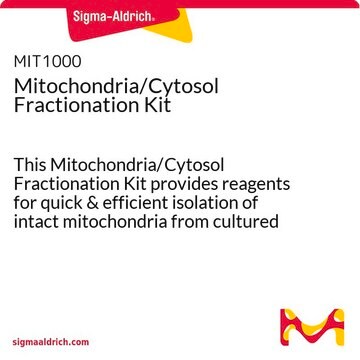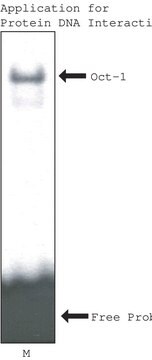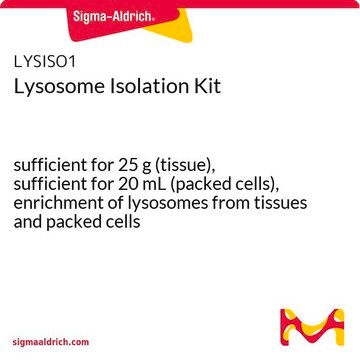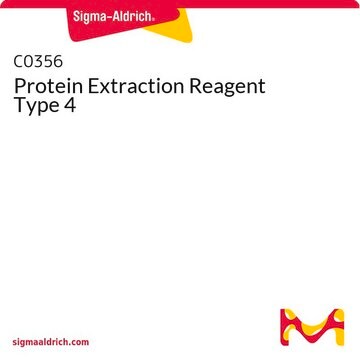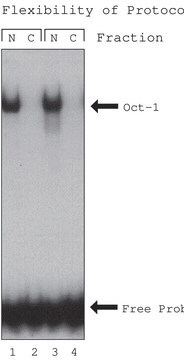MITOISO2
Mitochondria Isolation Kit
sufficient for 50 applications (2-5 x 107 cells), isolation of enriched mitochondrial fraction from cells
Synonym(s):
Mitochondrial Extraction Kit, Mitochondrial Purification Kit
About This Item
Recommended Products
Quality Level
usage
sufficient for 50 applications (2-5 x 107 cells)
technique(s)
ELISA: suitable
western blot: suitable
shipped in
dry ice
storage temp.
−20°C
Looking for similar products? Visit Product Comparison Guide
General description
Application
- Ewing′s Sarcoma Family of Tumor (ESFT) cells
- blood samples of tuberculosis patients
- human neuroblastoma cells and glioma cells
- myotubes
- HepG2 cells
Features and Benefits
- The kit allows for quick and simple extraction of a concentrated portion of mitochondria from cells.
- The isolated mitochondria will mostly have intact inner and outer membranes.
- Can be used to extract mitochondrial proteins for proteome analysis
Other Notes
- This product is for R&D use only, not for drug, household, or other uses.
- Please consult the Material Safety Data Sheet for information regarding hazards and safe handling practices.
- Use ultrapure water for the preparation of reagents.
- Please refer to the product information sheet to learn more about kit components, reagents required, storage and stability, and isolation protocols.
Kit Components Also Available Separately
related product
Signal Word
Warning
Hazard Statements
Precautionary Statements
Hazard Classifications
Acute Tox. 4 Oral - Aquatic Chronic 2 - Carc. 2 - Eye Irrit. 2 - Repr. 2 - Skin Irrit. 2
Storage Class Code
10 - Combustible liquids
Flash Point(F)
188.6 °F - closed cup
Flash Point(C)
87 °C - closed cup
Choose from one of the most recent versions:
Certificates of Analysis (COA)
Don't see the Right Version?
If you require a particular version, you can look up a specific certificate by the Lot or Batch number.
Already Own This Product?
Find documentation for the products that you have recently purchased in the Document Library.
Customers Also Viewed
Articles
Centrifugation separates organelles based on size, shape, and density, facilitating subcellular fractionation across various samples.
Cellular apoptosis assays to detect programmed cell death using Annexin V, Caspase and TUNEL DNA fragmentation assays.
Cellular oxidative stress is countered by enzymatic scavengers and antioxidant modulators against reactive oxygen species damage.
Our team of scientists has experience in all areas of research including Life Science, Material Science, Chemical Synthesis, Chromatography, Analytical and many others.
Contact Technical Service


